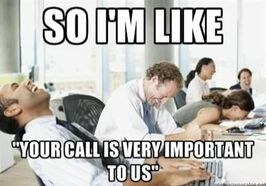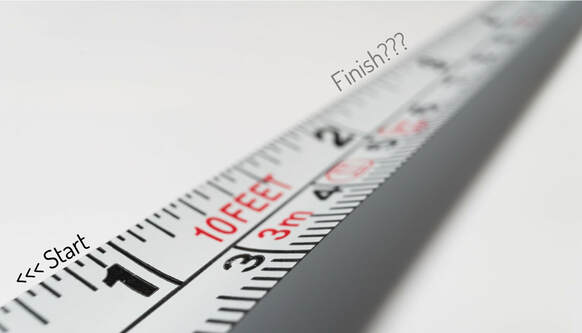|
Let me share a quick story with you... I've been looking for a replacement garage door recently and whenever a reasonable amount of money is to be spent then I've always believed in getting 3 quotes from different suppliers. After calling 3 companies that could help, one tried to close the sale while on the phone doing another job (without turning up to see us), we left a message for one that didn't call back and a third one turned up and gave professional advice and followed up with a written quote. How to increase conversion rates Source: Pinterest Source: Pinterest Not happy with this, we called some more businesses and out of another 4 calls, only one turned up and gave some great advice but failed to send a quote as promised. You may be wondering why I'm telling you this story but consider this: Out of 7 local businesses, only 1 has actually fully responded to the needs of their customer while one has wasted time turning up, only to not finish the sales lead generation process of sending a quote as promised. Could closing a sale be as simple as responding efficiently and professionally to a sales opportunity? When I refer to 'conversion rates', this is the percentage of opportunities that are converted into s sale. If you receive 10 enquiries and 6 of them become customers then the conversion rate is 60%. From my experience selling on third party sites I have found that sales conversions are much higher when I respond within hours to an enquiry. Even responding a couple of days later has resulted in responses such as 'thanks, but I've decided to go with someone else'. Frustratingly this even applies at the weekend if someone makes an enquiry on a Saturday but they don't get a response until Monday. Regardless of what the quality of the service or the price might be, it seems that many customers quickly lose interest if they don't get a prompt response. The perfect lead generation? We are all human and nobody is perfect when it comes to responding to enquiries. It's easy to forget to respond or to be too busy and if we are too busy with too much business being generated then we might let the odd sales opportunity go but if we look back to my story - that's 6 out of 7 businesses that failed in their lead generation process. And it's not for a small order of pennies and pounds, it's much more. You might be reading this thinking 'yes, but this is tradesman/they have limited capacity/my industry isn't like that etc' (delete as appropriate) but this isn't the first time I have experienced this - and I guess it's the same for you. Failing to respond and an ineffective lead generation process is common across almost any industry. How to improve conversion rates A solid lead generation process should consist of a clear, well working process from raising awareness of your services, attracting interested customers and closing down the sale. An opportunity should remain in the pipeline until it is either closed - lost, closed - won or closed because the customer has decided to either go ahead at a later date or not at all. If you plan to spend a lot of money on advertising but are unlikely to chase leads until it's converted or lost then don't waste your time or money. It's possible to automate parts of your lead generation using, for example, automated email marketing and this is something to consider seriously in your business as it can save time and money AND lead to higher conversion rates and sales. However, there will always be times when the personal touch is needed that can't be fully automated and the level of personal touch depends on the type of business. Facebook and Google Ads, business networking and email marketing are great tools to generate leads but they cannot be highly ineffective if you don't respond to potential or qualified opportunities properly. It might sound simple but responding professionally and timely to enquiries can make a huge difference when it comes to winning an opportunity. Now you know how to improve your conversion rates. Contact Think Twice Marketing to get help with your lead generation process. Why not watch the video summary for this blog post with the video below? You may also want to subscribe to our YouTube channel for more videos to help you with marketing!
0 Comments
I hate to sound like a politician but, it depends. At this point, don't worry, I'm not going to start talking politics although if there was any relation to politics then by any measurement, a blog post should be shorter than the Brexit process! How long should a blog post be?The length of a blog post depends on your line of business, what the topic is and what your objectives are.
My strong preference is always to have posts that are between 300-800 words in length. Anything short of 300 words makes it very difficult to get the key message of a blog post over to your audience while longer posts start to lose readers who, like all of us in today's busy world, have short attention spans. If you want your blog posts to appear in search results so that your business can be found then over 600 words is best, although this doesn't mean that every post should be that long/ Still there? What if I can't keep the readers attention? You can keep people's attention for longer with images and titles (like the one above) but longer blog posts tend to be too wordy or lack focus. A good blog post should have a call to action at the end and the more reading and scrolling on a mobile device to read the full article risks the reader losing interest and not getting to the call to action at the end. But I need more words to describe my concept or issue! If you are a rocket scientist (or in the area of anything to do with science!) you may need longer blog posts to explain something. Blog posts can often be used to provide educational or informative insights and longer blog posts may be necessary but this should be for occasional blog posts, not for every post. My SEO guy says they should be 3,000 words long If you are familiar with Search Engine Optimisation (getting to the top of Google or SEO for short) then you will most likely have been told to pack your posts with the right keywords and that the more visitors and the longer they stay on your page then the higher Google will rank your page in search. To this end, you may have been told to write blog posts that are well over 1,000 words. These are valid points but consider these points...
You may want to contrast long blog posts with marketing blog posts from Seth Godin - a well-known marketing guru who frequently writes short posts, sometimes that are less than 200 words. There aren't many marketing experts better than Seth so he must be doing something right. In summary There is no definite rule to how long a blog post should be, but they should be easy to read, informative and add value. They should include headings, images and if possible, video. If you can get the message across in less than 300 words then perfect. If you need over 800 words to do it from time to time then that's fine, but as a general rule, 3-800 words offers a great balance in meeting your objectives. Is it possible to get the message across in less than 800 words? Well, I believe it is. Thanks for reading my sub-600 word blog post! Need help writing blog posts? Contact us |
written byThe opinions in these blog posts are those of marketing expert and book author Darren Hignett. Categories
All
Archives
October 2022
|
|
Open 9 am - 5 pm
Tel: 07769 331 247 |



 RSS Feed
RSS Feed